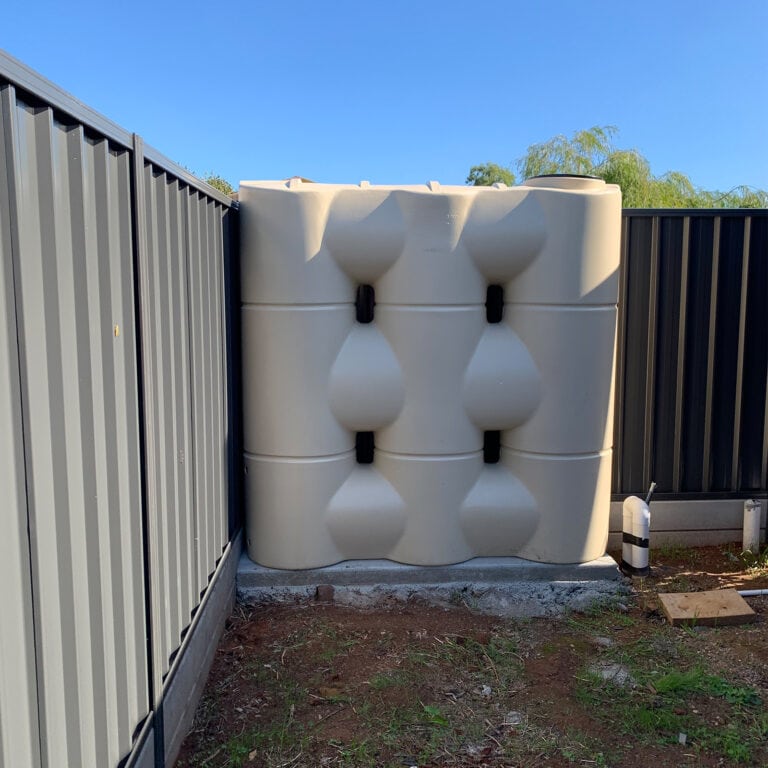Discovering the Different Uses Rainwater Containers for Residential and Commercial Characteristics
As the international concentrate on lasting living techniques remains to heighten, the application of rainwater storage tanks in both property and commercial settings has actually become a pertinent option. These tanks use a tank for rainwater harvesting, providing a myriad of possible applications that extend much beyond mere storage. From watering to commode flushing and landscaping, the flexibility of rain containers is huge. Moreover, their combination into industrial homes opens a world of opportunities for environmentally aware organizations. The diverse uses of rainwater storage tanks provide a compelling situation for their fostering, not only as a functional water-saving procedure however likewise as a testament to accountable resource management.
Advantages of Making Use Of Rainwater Tanks
Making use of rain tanks supplies many benefits for both households and communities in terms of water preservation and sustainability. Among the vital advantages of using rainwater containers is the significant decrease in reliance on mains supply of water - Slimline water tanks. By catching and saving rain for later use, people and neighborhoods can reduce their need for cured water, ultimately easing the worry on water treatment centers and reducing power intake connected with water transport and therapy
Additionally, rain collecting with containers gives a trustworthy alternative water source throughout times of water restrictions or lacks. This kept rain can be used for various non-potable functions such as watering, flushing toilets, and washing garments, decreasing the pressure on traditional water sources. In addition, using rainwater storage tanks can lead to cost savings for both households and areas by decreasing water expenses and reducing the demand for pricey framework expansions to satisfy growing water demands.
Essentially, the utilization of rainwater containers uses a sustainable and eco-friendly strategy to water monitoring, profiting both private users and the more comprehensive area in regards to water conservation, cost-efficiency, and durability.
Rain Storage Tank Use in Watering
Given the benefits of rainwater containers in conserving water resources and reducing reliance on keys water, a significant application hinges on making use of stored rain for watering purposes - Slimline water tanks. Rain harvesting systems can successfully collect and keep rainwater, offering a sustainable water resource for sprinkling yards, grass, and agricultural fields. By utilizing rain for irrigation, homeowner can lower their dependancy on treated water sources, causing cost financial savings and environmental benefits

One of the main benefits of making use of rainwater for watering is its purity. Rainwater is normally soft and without the chemicals and ingredients usually discovered in keys water, making it excellent for nourishing plants without the threat of damaging effects. Additionally, rainwater is at ambient temperature level, which can benefit plant development by avoiding temperature level shocks that can happen with cold mains water.
Rainwater Storage Tanks for Toilet Flushing

Applying rain tanks for toilet flushing is a cost-efficient and eco friendly practice that can be easily integrated into both property and industrial residential properties. The saved rainwater can be made use of to flush commodes by attaching the storage tank to the existing plumbing system. This easy yet reliable remedy can significantly decrease water consumption in a building, particularly in locations where water deficiency is a problem.

Including Rainwater Containers in Landscape Design
An efficient method for improving sustainability in landscaping entails integrating rain tanks to enhance water usage and advertise green methods - Slimline water tanks. Incorporating rain tanks in landscape design uses many advantages for both residential and industrial residential properties. These containers can capture and store rain overflow from roofings, site here which can then be made use of for sprinkling gardens, grass, and plants. By making use of rain for irrigation objectives, homeowner can minimize their reliance on metropolitan water sources, resulting in cost financial savings and preservation of valuable water sources.
Along with offering a lasting water resource for landscaping requirements, rainwater containers can additionally help in handling stormwater drainage. By recording rainwater that would or else stream into storm drains pipes, these storage tanks can alleviate disintegration, reduce flooding dangers, and stop air pollution of all-natural water bodies. Moreover, incorporating rain containers in landscape design can contribute to the general visual appeal of the home, showcasing a commitment to ecological stewardship.
Commercial Applications of Rainwater Storage Tanks
Using rain containers in industrial setups uses a sustainable remedy for water management and preservation, benefiting businesses and the environment alike. Commercial applications of rainwater tanks vary and increasingly popular due to the expense financial savings and environmental advantages they offer. One essential industrial use is for watering objectives, where collected rain can be utilized to water landscaping, this contact form gardens, and agricultural areas bordering industrial properties. This can bring about substantial decreases in water costs and dependence on local water resources.
Moreover, rain storage tanks can be integrated right into the fire suppression systems of commercial structures. By having a devoted water resource for firefighting functions, businesses can boost their fire safety procedures and potentially lower insurance coverage premiums. Furthermore, rainwater gathered in tanks can be treated and utilized for non-potable purposes within industrial residential properties, such as flushing commodes, cleaning, and cooling systems. This not just preserves fresh water sources but also lowers operating prices for services. Overall, the incorporation of rain tanks in industrial setups offers a useful and eco responsible strategy to water administration.
Final Thought
From watering to commode flushing and landscape design, the use of rainwater containers can help conserve water sources and lower water expenses. Overall, the flexibility and sustainability of rainwater storage tanks make them a beneficial investment for any residential or commercial property proprietor looking to increase water efficiency.
Comments on “Slimline Water Tanks: The Perfect Option for Urban Water Storage”